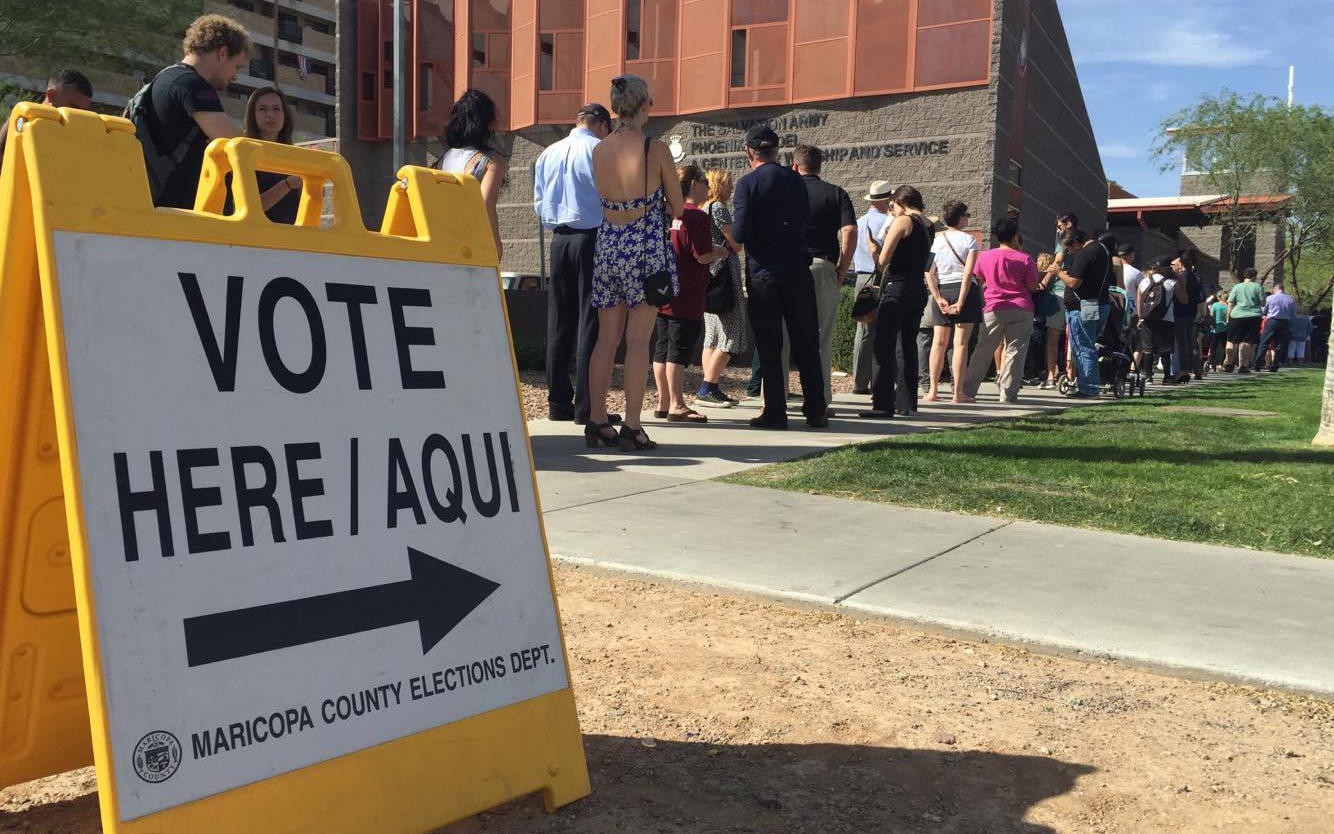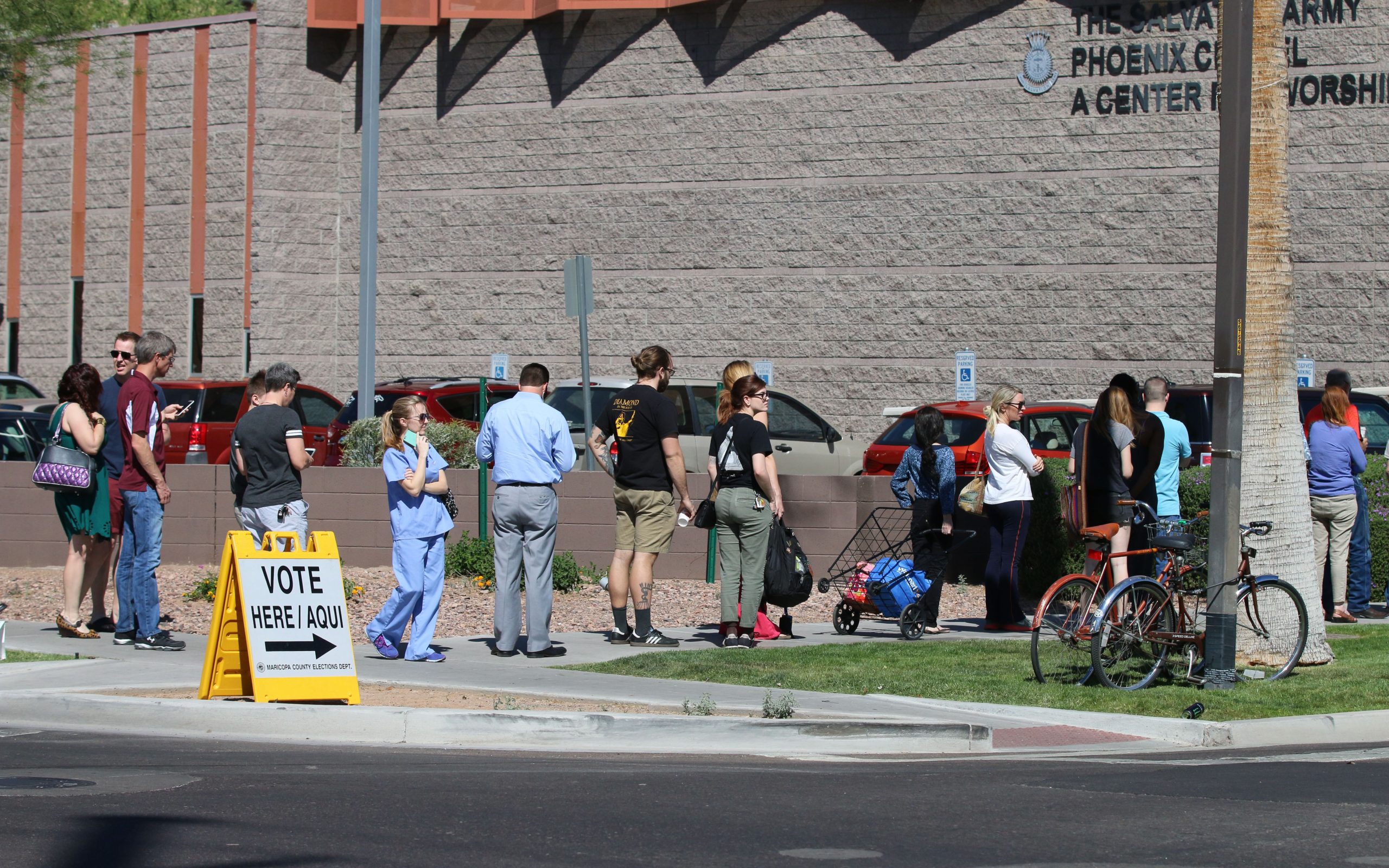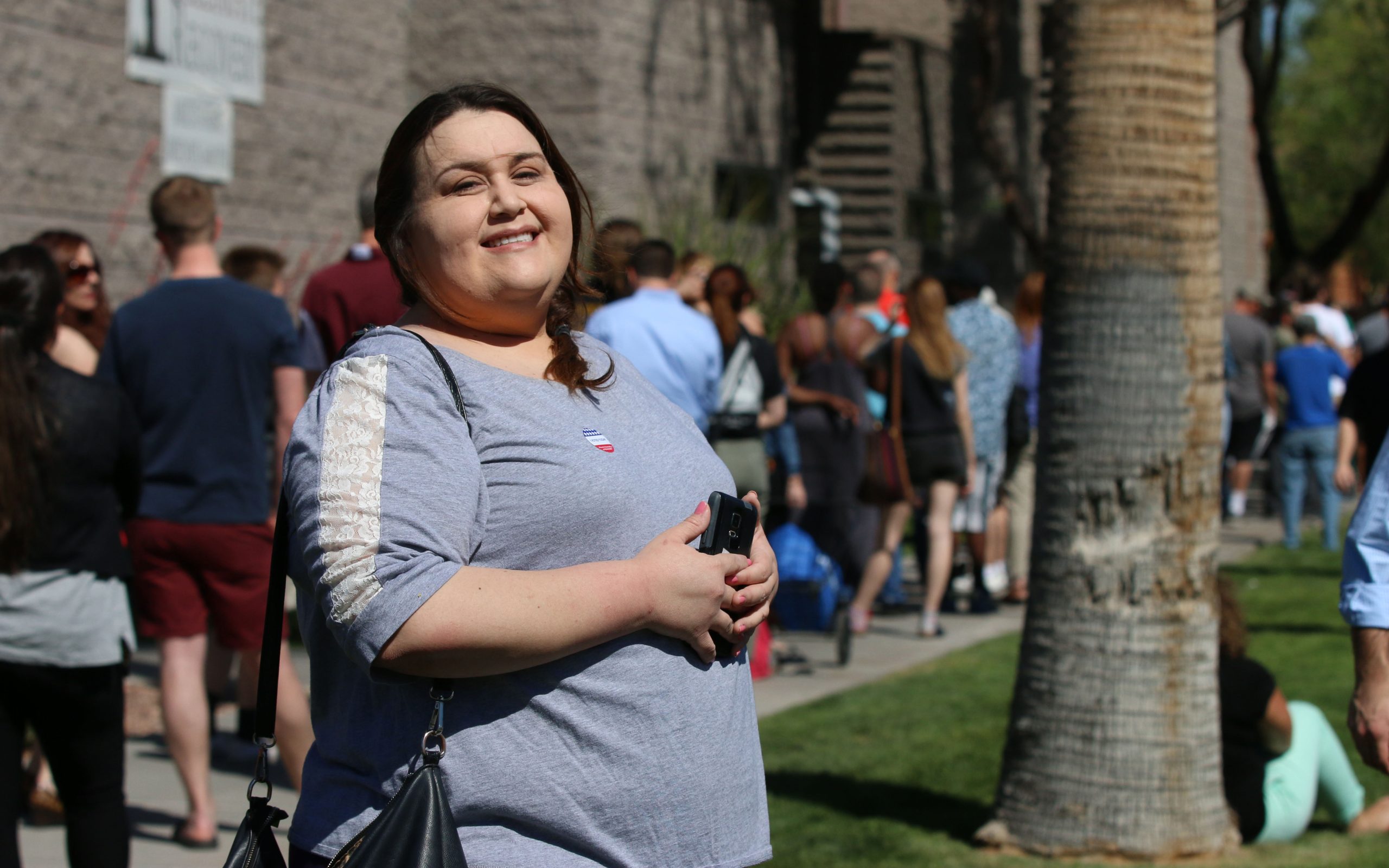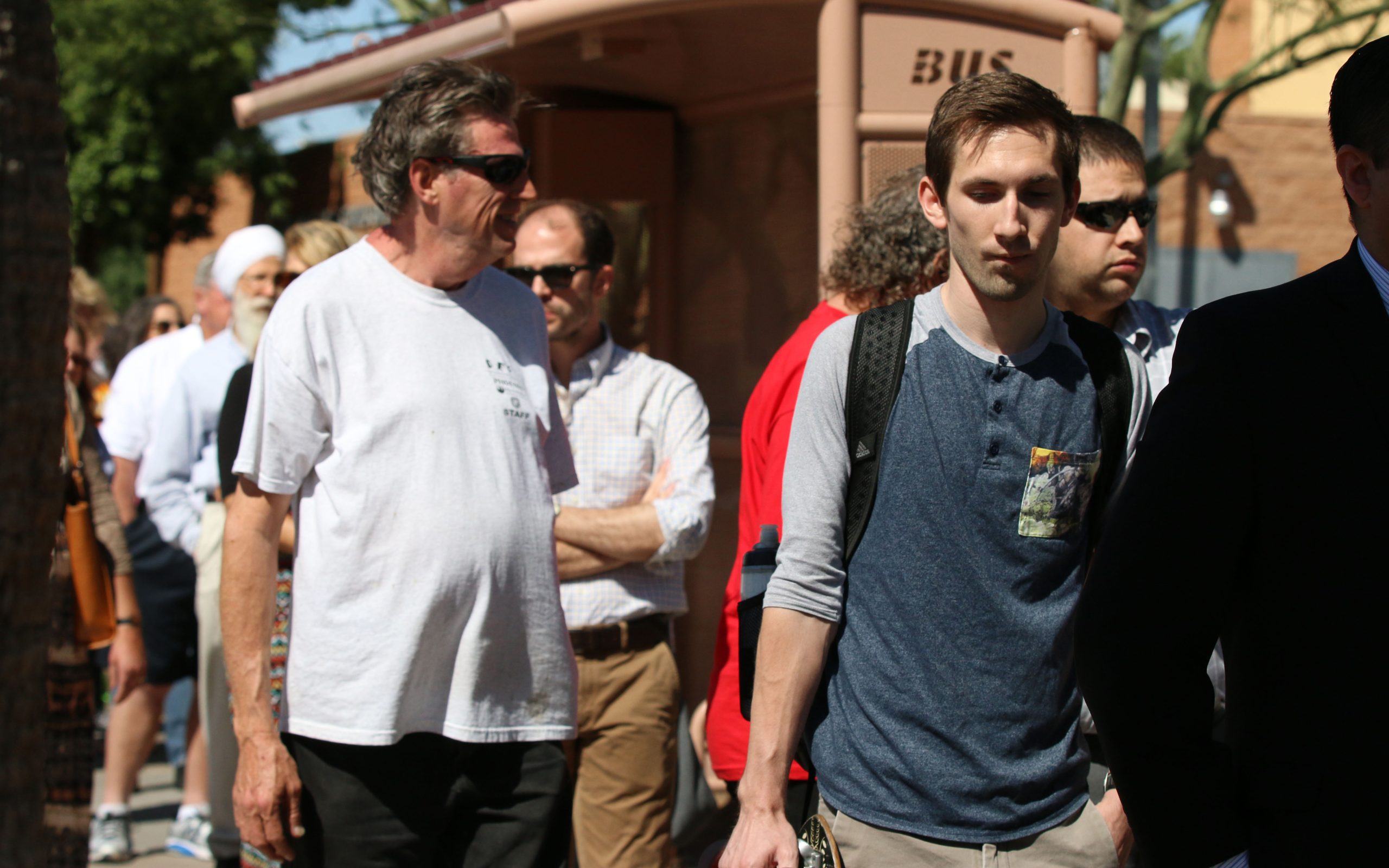Long lines and traffic jams have plagued most of Maricopa County’s 60 presidential preference election polling places since they opened at 6 a.m., an election official said. Some voters have had to wait in line for up to two hours at some locations.
Read more:
Maricopa County elections officials reduced polling places to 60 to save money
Arizona Secretary of State predicts large turnout for presidential preference election
Newscast: Cronkite News Election Night Special
Storify: Live coverage of Arizona presidential preference election
Shuya Ohno, the campaign director for the national Right to Vote Initiative, was told that the county has had 200 polling stations open in the county for the preference election in the past.
“The fact that people are waiting two hours or more is really inexcusable on the part of (Maricopa County Recorder Helen Purcell),” Ohno said.
Elizabeth Bartholomew, communications manager at the Maricopa County Elections Department, said the reason for the long lines is the number of independent voters making their way to the polls despite their ineligibility.
“There’s going to be long lines. People have to plan for that,” Bartholomew said. “A large number of independents are showing up to the polls, and when they find out they can’t vote, they may be upset. If independents are there, it takes time to explain to them why they cannot vote.”
Ohno said Purcell claimed the county cut down on the polling locations to “save money.”
“I’m sure I would take her at her word, but I think what she’s done, in order to save money, has passed the cost on to the voters,” he said.
Roopali Desai, an election attorney for local law firm Coppersmith Brockelman, said the county was able to dramatically reduce the number of polling places due to recent changes to the Voting Rights Act of 1965, brought on by the 2013 Supreme Court decision in Shelby County v. Holder.
Shelby County v. Holder concerned the process for states with a history of discrimination to make changes to their election process with approval from the federal Department of Justice.
In the last presidential election, counties in Arizona had to go through federal review before making changes to the local voting process. But this time around, Desai said, Maricopa County could make changes without any review of impact into how it could affect voters.
The lack of polling locations particularly affects underprivileged communities, who have limited access to transportation, she said.
“This creates additional obstacles for them because most people can’t take three hours off to work to stand in line and vote,” Desai said.
Ohno and Desai said they spoke to “hundreds” of voters today to gather anecdotes about their wait times, and are collecting data to consider taking legal action on how the number of polling locations affected Tuesday’s vote.
During the general election in November, the department will have 724 polling places open, which is about twelve times more than the 60 available Tuesday.
Tempe Mayor Mark Mitchell urged Tempe voters to stay patient and reminded them that the county, not the city, decides on the number of polling locations.
The line to vote in downtown Phoenix stretches around the block!! #AZPrimary @cronkitenews pic.twitter.com/q1uHo0HViE
— Miguel Otárola (@motarola123) March 22, 2016
Voter Leslie Sonnenklar showed up to the Salvation Army’s Phoenix Citadel Corps polling place in downtown Phoenix Tuesday morning. Sonnenklar, who had injured her foot, had to take a break and sit down under a nearby tree while strangers held her place in line.
She said she had waited for about 45 minutes, and the line had wrapped around the building.
Dana Johnson also waited at the same polling place.
“Oh my God,” he said. “It’s just interesting that it is so noteworthy so many people are coming out to vote for this election, and it’s so exciting.”
He said he’s a regular voter, but “this type of line is going to make me consider early voting, for sure.”
Later in the day, the location had a line wrapping around the block, with people waiting longer than one hour and a half to enter the building.
Statewide, one election official said things are running smoothly.
“Turnout has been good and strong,” said Matt Roberts, a spokesman with the Arizona Secretary of State’s Office. “Polling places are processing pretty well, and we haven’t heard of any problems.”
However, Coconino County Recorder’s Office spokeswoman Patty Hansen said they also ran into problems.
At its Northern State University voting station, they had issues with “students registered independent are not being able to vote, and students registered in other counties or states not being able to vote.”
She said otherwise, they didn’t have major problems and expected high turnout.
“From what I’m hearing, voting is pretty steady,” she said. “I say over 50 percent turnout if it keeps steady.”
She said more than 60 percent of their early ballots – more than 16,600 – have been returned.
Maricopa County also had a high early voter return rate.
Of the about 852,000 early ballots requested, about 55 percent or 471,000 of these ballots have been turned in, Bartholomew said. Those who have yet to turn in their ballots can do so at one of the polling places today.
One Maricopa County resident, Amy Vynalek, changed her party preference about six weeks prior. She received two early ballots in the mail, one for the Democratic primary and one for the Republican.
In this situation, Maricopa County Recorder Helen Purcell said the voter can only turn in the ballot for the party for which she registered.
In the 2012 presidential preference election, voter turnout was 45 percent. However, only the Green and Republican parties had candidates on the ballot since President Barack Obama represented the Democratic party.
In 2008, turnout reached 51 percent when voters had a choice between Obama and Hillary Clinton on the Democratic side and John McCain and Mitt Romney on the Republican side.
Maricopa County voters can drop off their mail-in ballots or vote in person at any of the county’s 60 polling places. To find a polling place, go to recorder.maricopa.gov/pollingplace.
Polls close at 7 p.m.
Cronkite News reporter Jessi Schultz contributed to this article.



